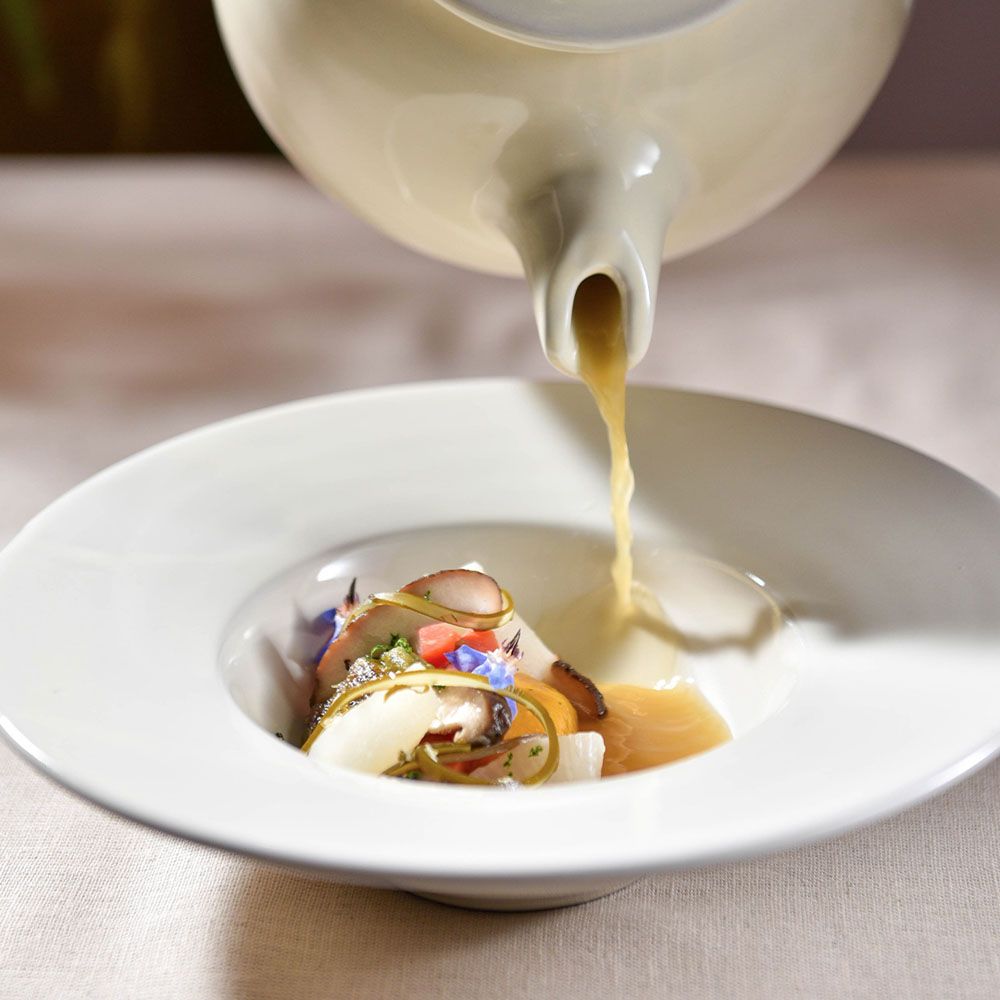Launched by Finnish food tech company, Solar Foods, Solein is said to be the most sustainable protein powder and is made from microbes, gases and water
There are always new developments in food technology that help us eat and live more sustainably, and, in recent years, there has been a rise in plant-based food products, cultivated seafood and lab-grown meat made from animal cells that provide alternative food sources without relying on traditional farming and agriculture. The latest breakthrough innovation is Solein, a sustainable protein powder created by Finnish food tech company Solar Foods using microbes, water and carbon dioxide.
Solar Foods CEO and co-founder, Dr Pasi Vainikka, shares that producing Solein is “similar to the process of fermentation” whereby the microbes (tiny living things found all around us) are fed with oxygen, carbon dioxide and hydrogen (instead of sugar) and nutrients to grow. These are then dried and made into a powder form with a distinct yellow hue (similar to turmeric), but Vainikka notes that Solein can also come in liquid form and in a block format similar to cheese. Furthermore, the final product contains 65 to 70 per cent protein, five to eight per cent fat, and three to five per cent mineral nutrients.
In case you missed it: Is lab-grown meat the future of food?
Vainikka adds that the team started working on Solein in 2017; following the regulatory approval they received from the Singapore Food Agency in 2022, Solein was launched to the public for the first time in a by-invite-only food tasting at Italian restaurant Fico last month. Creating the five-course menu was Fico chef-partner Mirko Febbrile and Open Farm Community head chef (and member of the F&B Sustainability Council) Oliver Truesdale-Jutras, who spoke about their experience of incorporating this novel food into their dishes.
“Solein isn’t trying to substitute an actual piece of meat, fish or egg,” quips Febbrile, before letting on that it can be a “tool for chefs to develop something creative (in the kitchen) but in a more sustainable way”. Truesdale-Jutras agrees, saying it might even change how chefs cook in the future with this “new product in our arsenal”. Having said that, Truesdale-Jutras whipped up dishes like the Japanese mochi soup, which incorporated the Solein powder in the miso broth without affecting its delicate umami flavours, while Febbrile used Solein as an ingredient in making fresh pasta for his Singapore-style pesto, as well as his Solein ice cream topped with figs and fig vincotto.
With Solein making its debut in Singapore last month, Vainikka declares that “the food revolution we have been working towards for years has taken a major step forward.” He compares it to the “discovery of the humble potato”—except that you don’t the sun, soil, animals or plants to create Solein. “Its production is disconnected from agriculture,” adds Vainikka, and it can even be produced in the harshest conditions including deserts, Arctic areas and space.
With plans to launch commercially in the global market next year, Solar Foods started building its first commercial facility in Vantaa, Finland last year. It also plans to expand its network facilities in other regions, including Singapore. Thus, it might just be a matter of time before we see Solein incoporated in the chefs’ dishes across the island.




